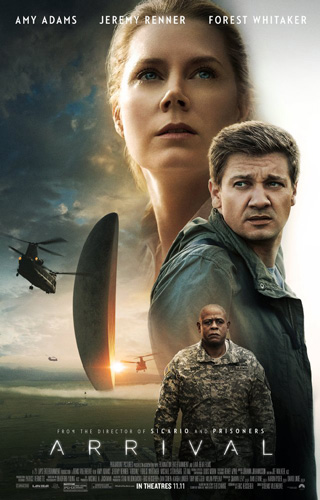How My Top 3 Films This Year Help You Make the Impossible Possible

As a BAFTA judge I watch about 150 films a year. My top three this year truly inspire. They bring to life the thought processes I’ve discovered to be pivotal to invention, innovation, emotional intelligence and communication – the keys to entrepreneurial thinking and making the impossible happen.
There are no spoilers below. If you’d like to be entertained while letting your unconscious mind learn something useful for your success, then I highly recommend watching all three of these.
#3 Hidden Figures

Hidden Figures is the true story of three female African-American mathematicians, known as “human computers” who worked for NASA. Katherine G. Johnson (Taraji P. Henson), Dorothy Vaughan (Octavia Spencer) and Mary Jackson (Janelle Monáe) were instrumental in getting astronaut John Glenn into orbit and back home in 1962.
The story is incredible from several aspects.
- It’s true.
- It took over fifty years for them and their work to be acknowledged.
- Their intelligent, inventive and creative approaches to solving problems – both scientific and societal – helped set precedents for women, African-Americans and space flight.
Hidden Figures is about invention. It’s giving your unconscious mind all that data about the problem and the objective, using the skills that you’ve learned, refined and become an expert in, and creating opportunities and taking leaps that no one else would have thought of to get there.
But there’s more than that. There’s also that human element, that random curve ball, that moment of expressing an emotional truth, which connects us to someone or something that helps us.
Hidden Figures is a real-life heroes journey. It’s worth watching no matter what gender or race you are. It’s also the best film this year to take kids to if you want them to be inspired into thinking they can do and be anything when they grow up.
#2 Captain Fantastic

Captain Fantastic is a story of a polymath father, Ben (Viggo Mortensen) who is raising his kids off-grid in the wilderness of the Pacific Northwest. He home-schools all of them, including the youngest, in a wide range of arts, sciences and physical fitness regimes. Crucially, he teaches them how to think. When they go on a road-trip and reconnect with other members of their family, his upbringing approach is challenged. Director, Matt Ross, says the idea for the film started with a simple question: “Am I being a good parent?”
This film really is fantastic for several reasons:
- Ben encourages his kids to learn everything about everything.
- Ben has honest, direct and authentic conversations with his kids regardless of their age.
- When the kids believe they can do anything, they achieve what others might think impossible.
Captain Fantastic is about how we create the foundation on which innovation can be built. Learn everything about everything, regardless of whether it’s in your field or not. Challenge yourself beyond your limits and what you think is possible. Be curious enough to do so.
And on the human side, live an authentic life – one where we learn to know ourselves, what we think and how to communicate honestly and openly, without embarrassment or fear.
Ironically, this film is rated R for language and brief frontal nudity, both of which are used well within the film to make a point about what society finds acceptable, rather than for gratuity. I recommend this film to any parents or up-coming parents. Personally, I’d have been incredibly inspired to see this as a young teen. I’d love it to change the way we think about education – as one of the most crucial differences we can make for our future is increasing intellectual and emotional intelligence – this film shows what we currently consider an unconventional way to do both. Innovation only happens when we do what we haven’t considered doing before.
#1 Arrival

Arrival is about the impact of language. It is told through the story of linguistics professor, Louise Banks (Amy Adams), who is asked to understand a completely alien language.
The premises of this film are simple but strong:
- What is language?
- What is communication?
- How do we use language to communicate in the most powerful way?
Language doesn’t describe reality, instead it describes our window onto it. It results from the stimulus we receive, which is deleted, distorted and generalised unconsciously to form a personal internal representation. The language we use says how we’ve filtered that information and determines what we do and don’t see through that window – i.e. how we limit ourselves.
By identifying how our language has deleted, generalised and distorted our experience, we can take away those limits. In Neuro-linguistic Programming (NLP) this is known as the Meta Model.
An example would be, “Everyone always holds me back.” This limits the belief that one can move forwards. This limitation is broken by questioning. Who, exactly, is everyone? Always? Often, we discover that everyone is one or two people and that always is a specific set of occurrences. That clarification destroys the hold of the limiting belief and expands our possibilities.
Until we have the word for something we can’t comprehend it, share it or reach a common understanding. Several languages don’t have different words for green and blue. Think of explaining green grass and a blue sky to someone without that distinction. Zero only became a mathematical concept and number in AD 458. Without zero we can’t have the mathematics needed to land on the moon.
Language is power. We regularly use language to make the possible impossible. But we can also use language to make the impossible possible.
Saw all three of these – amazing films, I completely agree. And inspiring.